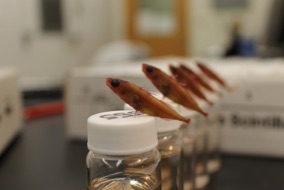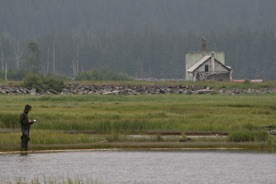Current Research
I am broadly interested in the interplay between adaptive evolution and individual phenotypic plasticity. Specifically, my lab is examining the role of ancestral plasticity in the repeated evolution of benthic and limnetic ecotypes in stickleback fish. Our recent work, in collaboration with the Foster/Baker Laboratory at Clark University, has demonstrated that diet-induced plasticity in trophic morphology leads to phenotypes resembling divergent ecotypes. This plasticity is present in both marine stickleback, which represent the ancestral state of the radiation, as well as derived, freshwater populations. We are expanding this project to address questions regarding plasticity integration as well as interactions between environmentally-induced plasticity and ontogeny.
Phenotypic Plasticity and Parallel, Adaptive Evolution
The Evolution and Development of Antipredator Behavior in Response to Introduced Predators



Throughout their range, threespine stickleback experience a variety of predator assemblages, including the loss of some predators relative to their marine ancestors, as well as the introduction of predators when lakes are stocked with game fish. We are exploring whether antipredator behavior varies predictably with the presence of predatory fish, and how a combination of learned and genetic mechanisms accounts for this variation.
